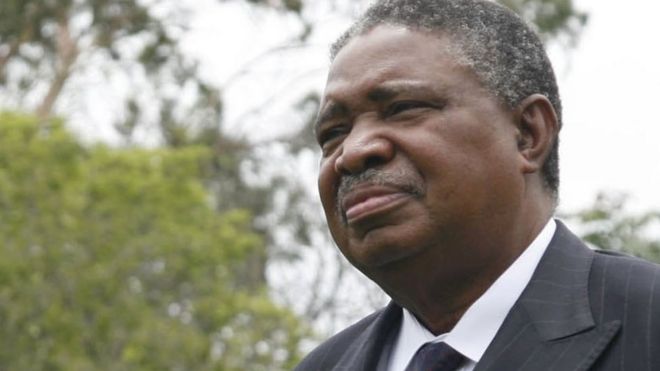The MDC is perturbed by the statement on Zimbabwe in the 36-paragraph SADC Communique issued Sunday following the regional body’s 39th summit of Heads of State and Government that ran from 17 to 18 August 2019 in Dar es Salaam, Tanzania. The SADC Communique is gravely concerning not just about what it said but also about what it did not say about Zimbabwe.
On paragraph 14 of their Communique, SADC leaders report that “Summit noted the adverse impact on the economy of Zimbabwe and expressed solidarity with Zimbabwe and called for the immediate lifting of the sanctions to facilitate socio-economic recovery in the country”.
Other than paragraph 6 of the Communique that congratulates “Emmerson Dambudzo Mnangagwa, the President of the Republic of Zimbabwe as Chairperson of the Organ on Politics, Defence and Security Cooperation”, nothing else is said about Zimbabwe.
It is disconcerting that SADC could congratulate Mr Mnangagwa as the new head of the regional body’s organ on Defence and security at a time when Zimbabweans are suffering insecurity and defenselessness from the regime in power in Harare.
While SADC leaders are well within their rights to pronounce themselves on the sanctions issue, it is disappointing that they have a frozen and opportunistic narrative on the matter. There’s no difference between what they have been saying since 2001 and what they said yesterday, like a record stuck in a groove.
For SADC leaders, it is enough to make the news headlines by “expressing solidarity with Zimbabwe” and “calling for the immediate lifting of the sanctions to facilitate socio-economic recovery in the country”. This 18-year old stock-narrative no longer has an audience besides the SADC leaders themselves.
On sanctions, SADC leaders must speak through actions, not through convenient but hollow words for the media. Contextualizing sanctions over a year ago, on January 2018, Mnangagwa himself said, “Yes, sanctions are there, but we should not continue talking about them. We must have solutions and already we have solutions in agriculture, and this should cascade to all sectors”.
Given Mnangagwa’s position, SADC’s call “for the immediate lifting of the sanctions to facilitate socio-economic recovery in the country” is odd and out of step with the reality in Zimbabwe.
Zimbabweans have come to know that when SADC leaders want to ignore or distort the tricky crisis of illegitimacy in Zimbabwe, they wax lyrical about sanctions and express “solidarity with Zimbabwe”, while saying and doing nothing about the worsening plight of Zimbabweans.
Yet there can be no Zimbabwe without Zimbabweans.
Before its 38th summit in August 2018, SADC was confronted by military and police atrocities committed in Harare on 1 August 2018, in which six Zimbabweans were killed in cold blood and 35 others were critically injured by the Army and the Police. This was confirmed by the Kgalema
Motlanthe Commission, an international body whose appointment SADC supported.
It is incredulous that the 2019 SADC summit was dead silent about the findings of the Motlanthe Commission and the failure and the unwillingness, by Mnangagwa’s administration to hold to account the army and police officers who killed six and injured 35 Zimbabweans on 1 August 2018.
Even worse, between 14 to 28 January 2019, at least 17 Zimbabweans were killed, hundreds tortured, some raped, by elements in the army, police, CIO and Zanu PF militia with thousands were displaced internally and externally in an unprecedented orgy of State violence that affected all major cities across Zimbabwe.
As in the case of the atrocities committed on 1 August 2018, in fact worse than in that case, no process of enquiry has been undertaken; and the State culprits are once again getting away scot-free with impunity.
The January 2019 scenario was another major clampdown on citizens and was carried out resulting in 17 extra-judicial killings, 17 cases of rape and other violations of a sexual nature, 26 abductions, 61 displacements, 81 assaults consistent with gunshot attacks, at least 586 assaults, torture, inhuman and degrading treatment (including dog bites), and 954 arrests and detention (including dragnet detentions). Further, a record-breaking 22 MDC and Civil Society leaders including parliamentarians and labor leaders face trumped-up charges of treason and subversion.
On 16 July 2019, labor leaders received anonymous letters with bullets in a clear move meant to intimidate the labor movement against exercising their right to peacefully demonstrate and petition. Where is SADC’s responsibility to protect? When will SADC, just for once, stand with the people of Zimbabwe and express solidarity not with Zimbabwe but with Zimbabweans?
Yes. Zimbabweans have had enough of a SADC that is always congratulating the President of Zimbabwe and expressing solidarity with the State but never addressing itself to the plight of the ordinary people brutalized by the State.
As SADC leaders were meeting in Dar es Salaam over the weekend, Zimbabwean State agents were busy abducting civil society and political activists; while the police and army were issuing illegal prohibition orders like confetti to deny citizens from holding peaceful demonstrations against the worsening economic hardships induced not by sanctions but by unprecedented corruption through rent-seeking schemes like command agriculture, fuel cartels and abuse of treasury bills by the ruling elite.
On the back of Zimbabwe’s crisis of illegitimacy, these hardships induced by corruption coupled with incompetence are causing multitudes of Zimbabweans to cross the borders into neighbouring SADC countries, notably but not only South Africa, Mozambique, Malawi and Zambia. The consequences of the emigration influx on regional economies are too ghastly to contemplate, yet SADC leaders continue to bury their heads in the sand like ostriches, only to raise the heads when they want to pontificate about 18-year old sanctions while doing nothing about them in real economic terms.
The MDC reiterates that the root cause of Zimbabwe’s problems is political, being a crisis of governance. A legitimacy crisis.
The July 2018 elections further entrenched the legitimacy crisis through a fundamentally flawed electoral process that did not guarantee the will of the people. The 2018 plebiscite did not conform to the provisions of the SADC Principles and Guidelines Governing Democratic Elections and the African Union (AU) Declaration on the Principles Governing Democratic Elections.
The electoral process was marred by irregularities including a highly partisan and captured Zimbabwe Electoral Commission, lack of transparency in the electoral process including on the printing and storage of ballot papers and poor stakeholder engagement by the Zimbabwe Electoral Commission, a party-state-military complex, partisan conduct of traditional leaders, partisan distribution of food aid, widespread Intimidation, abuse of State resources, biased State media, an Electoral Law that is not aligned to the Constitution of Zimbabwe including the disfranchisement of diasporans and post-election violence. Such a flawed electoral process perpetuated the legitimacy crisis and is manifesting in the current socio-economic crisis, deteriorating human rights situation and lethargy.
Moreover, there was an outright fudging of the figures as demonstrated by the fact that the Zimbabwe Electoral Commission revised downwards its own figures a record three times in a plebiscite SADC still held as credible.
The MDC urges SADC to urgently take note of the worsening situation in Zimbabwe as a threat to peace and security in the region and to recognize its responsibility to protect. We urge SADC to take the following specific actions:
1. Urgently be seized of the matter of Zimbabwe in order to address the multifaceted crisis and prevent further deterioration of the situation.
2. Urgently find a lasting solution to the Zimbabwean crisis anchored on facilitated and credible national dialogue.
MDC Communications
 Phelekezela Mphoko was co-vice-president with Emmerson Mnangagwa under Robert Mugabe
Phelekezela Mphoko was co-vice-president with Emmerson Mnangagwa under Robert Mugabe














 Tyler Broker’s work has been published in the Gonzaga Law Review, the Albany Law Review, and is forthcoming in the University of Memphis Law Review. Feel free to
Tyler Broker’s work has been published in the Gonzaga Law Review, the Albany Law Review, and is forthcoming in the University of Memphis Law Review. Feel free to 


